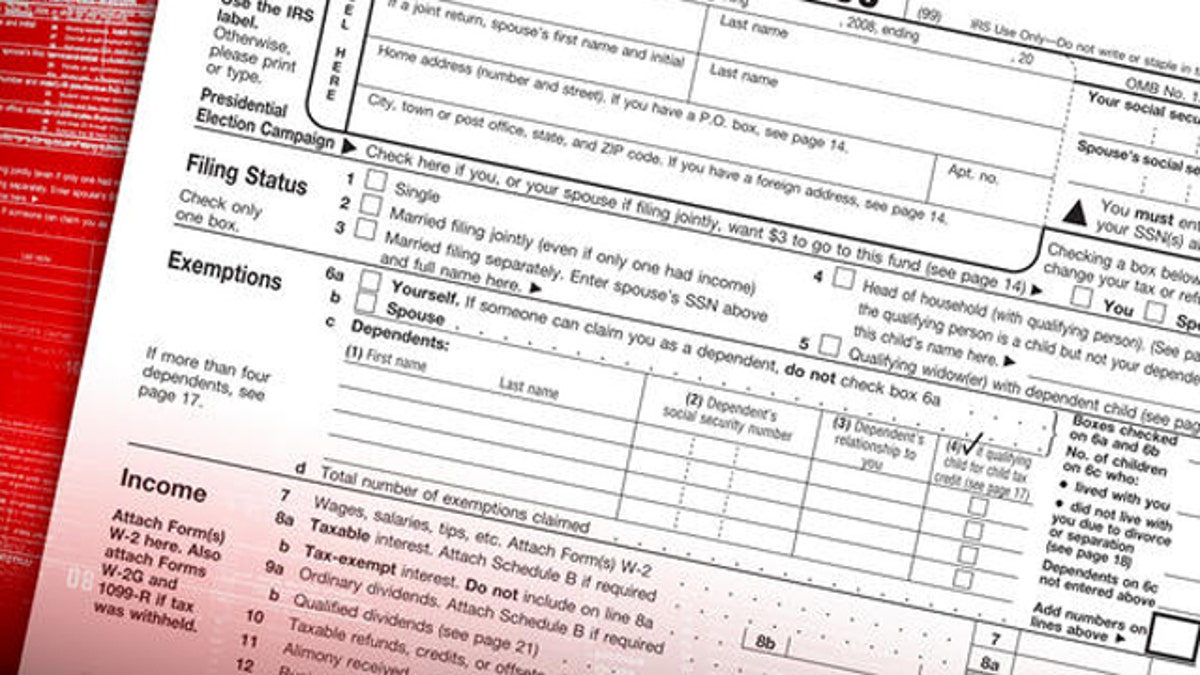
A 1040 IRS income tax form. (AP)
A host of miniature tax benefits will fly in under the radar next year, thanks to a combination of inflation and the recently passed tax package.
Though inflation has been so modest that Social Security recipients will not receive a cost-of-living adjustment for a second straight year, the IRS announced last week that inflation in 2010 was significant enough to merit several benefits changes for 2011 returns. The Consumer Price Index shows a 1.1 percent increase over the past year.
The subsequent tax changes, relating to provisions modified in the tax cut-extension package, are not as high-profile or high-impact as, say, the Social Security payroll tax cut or the change in the estate tax.
But they will offer taxpayers a smattering of relief when they file next year's returns come 2012.
Several of the adjustments deal with tax benefits available to most Americans. For the so-called personal and dependent exemption, the value will increase by $50 to $3,700. On top of that, the standard deduction for married couples filing jointly will rise by $200 to $11,600. For single tax filers, the deduction will rise by $100 to $5,800.
Most taxpayers take the standard deduction as opposed to itemizing for mortgage interest and other items. In another boost for a large swath of taxpayers, the income threshold that separates the 15-percent bracket and the 25-percent bracket will rise $1,000 to $69,000.
Several other inflation-related changes are on tap for some narrowly tailored tax credits. Among them, the top earned-income tax credit for low-income workers -- a provision that was expanded in last year's stimulus package and sustained in the latest tax-cut compromise -- will increase this year from $5,666 to $5,751. The income cap on that credit will increase from $48,362 to $49,078.
The IRS adjusts its tax provisions every year to keep up with inflation, though this doesn't always result in noticeable changes. The personal exemption and standard deduction amounts mostly remained unchanged in 2010 following a stagnant economic period.
The latest changes come on top of the better-known elements of the recently signed tax package. The package will extend for two years the Bush-era tax cuts for all income levels. It will reduce the Social Security payroll tax from 6.2 percent to 4.2 percent. And after a year off from the estate tax, the new package will set the rate in 2011 at 35 percent on the value of individual estates exceeding $5 million.




